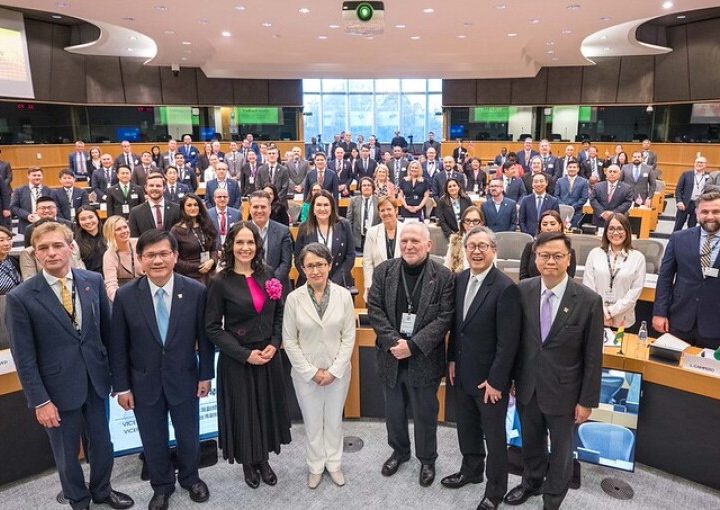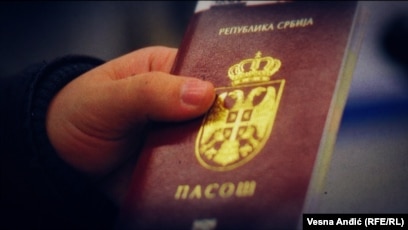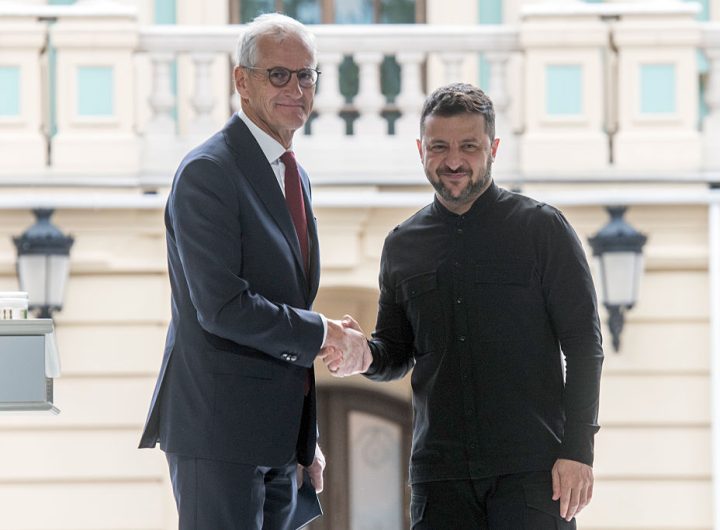
Original article by Dragan Sormaz for The Geopost
Although Croatia’s accession to the EU in 2013 raised serious and vocal concerns within the Union itself about further enlargement, Russia’s aggression against Ukraine in 2022 completely changed Brussels’ priorities. From that moment on, enlargement to the Western Balkans was defined as a geopolitical necessity and a way to close the “soft underbelly of Europe” when it comes to the security of the old continent. Since then, the EU has clearly defined and repeatedly officially confirmed its new enlargement strategy, which envisages that the Western Balkans (Serbia, Montenegro, Albania, North Macedonia, Bosnia and Herzegovina, and Kosovo) will remain at the center of European policy, with the ambition of making the region ready for EU membership by 2030. Concrete steps had to wait until the elections for the new EU Parliament and the appointment of the new Commission. I predicted this during the campaign, but many “doubting Thomases” in the region shook their heads in disbelief. The previous majority, dominated by social democrats, liberals, and Greens, was unable to start the process, but with the EPP taking the lead and the support of conservatives, enlargement has once again become a strategic goal of the EU. To begin with, it has opened up the possibility of Montenegro and perhaps Albania becoming members even sooner, with 2028 and 2029 being mentioned as possible dates.
If we look at the state of progress in European integration by country, this choice is logical. Montenegro and Albania are currently the most advanced in negotiations and are overtaking Serbia, which was previously the leading country on the European path together with Podgorica. The example of Serbia has shown that when there is no real will among the country’s political elites to make real progress on the European path and when there is a change in the country’s geopolitical orientation, this is immediately reflected in the speed of progress in the European integration process. Thus, Serbia has fallen from the leading position to the very bottom, with the tendency and intention of the regime in Belgrade to remain there permanently, dragging neighbouring Bosnia and Herzegovina, which the leadership in
Banja Luka holds as a kind of pawn in its suicidal geopolitical games, into the abyss with it.
The geopolitical positioning (foreign policy) of the countries in the region will have a decisive influence on the speed of their accession to the EU, as will the situation in the countries with regard to democracy (media freedom) and the rule of law (fight against corruption). Some countries, such as North Macedonia, will have to resolve existing disputes and demands from member states, such as those coming from Bulgaria to official Skopje.
In the case of Kosovo and Serbia, as well as Bosnia and Herzegovina, mutual relations between the candidates themselves will have to be resolved, such as the normalization of relations between Belgrade and Pristina on the basis of the Brussels and Ohrid agreements, while the fate of Bosnia and Herzegovina will be determined by the speed of internal institutional reforms and the success of suppressing separatism promoted by Milorad Dodik’s regime in Banja Luka.
However, these may just be random problems that will not delay accession if the countries are sincere in their intention to become part of the European family. Enlargement has always been a question of geopolitics and never of standardizing society. The accession of Montenegro and Albania before 2030 would not be painful for the EU. These are small countries, members of NATO, which would not be able to disrupt the functioning of the community, and their accession would send a strong signal to the region and the world that Brussels is serious about uniting the entire continent and becoming a global superpower in every respect. In 2030, Ukraine and Moldova will then be admitted to membership – a real geopolitical earthquake! This will happen after the next European elections, so these two countries will follow the example of Romania and Bulgaria, with a smaller number of MEPs, more or less as “trainees” who will learn on the job how the Community institutions work, and will enter with full capacity in the next term, in 2035.
In the current situation, marked by numerous internal weaknesses in the candidate countries, their geopolitical vacillation and tendency to flirt with the regimes in Moscow and Beijing, the EU faces a major test in terms of countering destructive influences, especially those coming in the form of hybrid actions from Moscow. This is precisely why Montenegro and Albania were given the opportunity to participate in membership earlier, as these countries have achieved the greatest emancipatory departure from Putin’s regime and the malign influences from Beijing. Many wonder why the EU is not tougher on Vučić. Why should it waste its time and resources on something that is a problem for the citizens of Serbia, who must solve their internal problems themselves? Which of Vučić’s alternatives has shown a willingness to implement serious reforms, impose sanctions on Russia, or break off talks with Kosovo? Ultimately, by accepting Montenegro and Albania, as well as with the fall of Dodik, the EU will destroy the myth of radical Serbia – the myth of the ‘Serbian world’, ‘Serbian integralism’ or ‘Serbian unity’!!! After that, Serbs will only be able to unite within the EU and NATO!!!
In addition to Serbia and Bosnia and Herzegovina, which are pawns in the geopolitical games of the regimes in Belgrade and Banja Luka, North Macedonia is also in a state of stagnation following the return to power of the successor to the pro-Russian regime of fugitive former Prime Minister Nikola Gruevski. Unfortunately, this coincided with the strengthening of the political positions of pro-Russian nationalists in Sofia, who made new demands on Skopje with the clear aim of blocking Macedonia’s progress towards EU membership in the interests of Moscow and its agenda of destabilising the Western Balkans. However, this issue can be resolved quickly, either through an agreement between Sofia and Brussels or through a change of government in Skopje. In fact, it could be resolved so quickly that it would not be surprising if North Macedonia were also included in the package with Ukraine and Moldova!
The political elite in Kosovo also show unwavering commitment to European and Western values, but due to the stagnation in the normalization process with Serbia and the internal institutional weaknesses of the young Kosovar state, Pristina has been unable to find common ground with its southern neighbors. Therefore, immediately after the local elections, Kosovo must (and will) fulfill its obligations under the Brussels Agreement and enable the formation of a Union of Municipalities with a Serbian majority! This will free Brussels to start membership negotiations with Pristina, while at the same time opening the door for America to accept Kosovo into international organizations!
Serbia is at an all-time low in terms of support for Serbia’s EU membership, at only 33%! The reason for this is Vučić, but also the student movement, which missed the opportunity to oppose his rule with the values of a democratic society, instead embarking on a path of appropriating mythical symbols: the church, religion, the flag, Kosovo, Serbian integralism, neutrality… However, it is only a matter of days before Vučić’s corrupt regime collapses and all the dirt of the thieves hiding behind Serbian nationalism is spilled out before the citizens! The least painful way for Serbia to get out of this situation would be a transitional pro-European government that would speed up the negotiation process together with Brussels! Regardless, with the fall of the current regime, Serbia, together with Moldova and Ukraine, and even more prepared than they are, Kosovo, Bosnia and Herzegovina, North Macedonia… could catch the European train.
The key to success in the process of integrating the Western Balkans into the European Union will be the EU’s political will to accelerate enlargement and combat Russia’s malign influence in the region, as well as the willingness of the countries in the region themselves to implement deep reforms. If the region does not make a significant institutional and democratic leap forward by 2030 and if its resilience to external hybrid threats and destabilizing influences is not strengthened, there is a risk that it will remain permanently in the “gray zone” between the EU and other global influences that do not see this part of the world as an area with the potential for dynamic development, but rather as a cheap bargaining chip in global geopolitical power games.
A united Europe, and as far as I am concerned, a federal Europe, is the safe path to the future of our region, the path to security, prosperity, freedom, peace, and well-being for each and every one of our citizens!/The Geopost/

 Japan and Europe come together in support of Taiwan
Japan and Europe come together in support of Taiwan  BIRN journalist: Media workers in Serbia exposed to digital attacks and secret surveillance – most cases go unnoticed
BIRN journalist: Media workers in Serbia exposed to digital attacks and secret surveillance – most cases go unnoticed  Robot Soldiers: Ground Drones On The Ukrainian Front Lines
Robot Soldiers: Ground Drones On The Ukrainian Front Lines  Possible security risks’ in serbian passports for russian citizens
Possible security risks’ in serbian passports for russian citizens  Norway urged to tap €1.8tn fund to help EU unlock Ukraine loan
Norway urged to tap €1.8tn fund to help EU unlock Ukraine loan  EU Launches ‘Democracy Shield’ to fight russian disinformation and protect electoral process
EU Launches ‘Democracy Shield’ to fight russian disinformation and protect electoral process